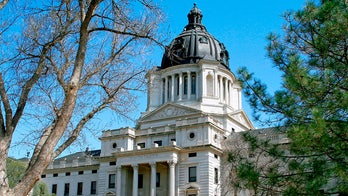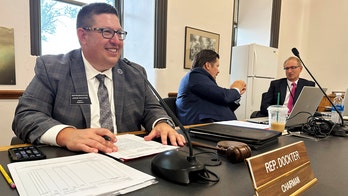
The White House says neither GM nor Chrysler submitted acceptable plans to receive more bailout money, setting the stage for a crisis in Detroit and putting in motion what could be the final two months of two American auto giants.
The Obama administration, however, has decided not to require the automakers to immediately repay government loan money they previously received, since that would force both companies into Chapter 11 bankruptcy.
A senior administration official told FOX News, "calling in the loans would not be a productive exercise for the American taxpayer since the companies don't have the money [to repay the loans] and it would simply put the companies into uncontrolled Chapter 11."
Obama was set to make the announcement at 11 a.m. Monday in the White House's foyer.
In an interview with CBS' "Face the Nation" broadcast Sunday, Obama said the companies must do more to receive additional financial aid from the government.
"We think we can have a successful U.S. auto industry. But it's got to be one that's realistically designed to weather this storm and to emerge -- at the other end -- much more lean, mean and competitive than it currently is," Obama said.
Instead, the administration has decided to give Chrysler 30 days to work out a deal with Fiat and GM 60 days to come up with a new restructuring plan. Both companies will be provided with "some working capital" during those time periods.
A senior official said, "bankruptcy is not the goal," although there may be a "role for a court supervised process to effect the restructuring... different from Chapter 11."
Two additional parts of the plan include the government standing behind both car companies' warranties during the restructuring periods and the White House naming a Labor Department official to minimize the impact of restructuring on communities where auto plants are located, by coordinating support for workers and their families.
GM and Chrysler, which employ about 140,000 workers in the U.S., face a Tuesday deadline to submit completed restructuring plans, but neither company is expected to finish its work.
GM owes roughly $28 billion to bondholders. Chrysler owes about $7 billion in first- and second-term debt, mainly to banks. GM owes about $20 billion to its retiree health care trust, while Chrysler owes $10.6 billion.
Officials say GM and Chrysler were treated differently because of differences in the companies.
Neither company is viable now, but Chrysler is an almost purely domestic company that has passed through several ownership changes and is not viable as a standalone company. It was "never in position to pay down its debt." GM is a global company with "a more substantial collection of assets and brands," and its cars received a higher ranking from Consumer Reports.
Officials say they are "confident GM can survive and thrive as a company... but it will take more significant restructuring."
No decision has yet been made about how much working capital the government will provide GM during the restructuring period.
Chrysler's potential deal with Fiat has a couple of requirements: Fiat's ownership must initially be less than the 35% US Government stake in the company, and it's not to rise above 49% until the new loan money is fully repaid. Chrysler will be provided up to $6 billion in additional working capital during the restructuring period.
In his comments tomorrow, Obama "will be clear that greater sacrifices are required from all stakeholders," officials said.
His aides had substantial criticism of bondholders, saying not only did GM's bondholders fail to meet the targets for reducing the company's liability under the loan agreement, the loan agreement's target weren't adequate for the current market environment.
Officials confirmed GM CEO Rick Wagoner was asked to leave, but denied it was a condition for receiving more government aid. The official said "we wanted to start GM with a clean sheet of paper. We felt the change in leadership would assist that."
The Associated Press contributed to this report.




